Scenes from History
The great alluvial flood plain known as the Mississippi Delta begins just south of Memphis, Tennessee and extends to just north of Vicksburg, Mississippi. The Delta is nestled between the Mississippi River on the West and the chain of hills on the East encompassing the Northwest quarter of the State of Mississippi.
Each year the Mississippi would flood all or at least a great part of the Delta leaving behind an additional layer of rich river silt. Ninety percent of the Delta was covered by virgin hardwood forest and low lying cypress groves. It was this vast stand of timber that would provide the financial capital to clear and prepare what would become one of the world’s agricultural paradises. Cotton would be the great cash crop in the Delta, but the timber made it all possible.
In the last quarter of the Eighteenth century planters from the Natchez area began to look north along the banks of the Mississippi for new lands to expand their holdings. Many new plantations were carved out of the oxbow lakes and hardwood forest north of the mouth of the Yazoo River. This area was owned by the Choctaw Nation and the early planters simply ignored the Indian’s claims. In 1817 Mississippi was admitted to the Union and things began to change.
The United States empowered General Andrew Jackson to enter into negotiations with the Choctaw Nation in an effort to trade some 13 million acres of land in the western Arkansas Territory for 5 million acres of Choctaw holdings in the Northwest corner of the new State of Mississippi. In October of 1820 the Treaty of Doak’s Stand was signed and the Mississippi Delta was opened to white settlement. Not much happened.
In the period from 1820 to 1866 there were no roads, no railroads and travel was limited to small river boats and horseback. Labor was scarce, goods remote and capital non-existent. The river counties grew, but the interior remained largely unsettled. The Delta remained a vast primal forest until after the Civil War. In the post war period things began to change.
In spite of confiscatory post war taxes imposed by the Reconstruction Republicans, the Delta began to be cleared for farming. This massive clearing effort continued until well into the 20th century and the timber provided the capital to clear and prepare the land for farming. Roads were built and railroads connected the cotton fields to an insatiable world cotton market. Towns grew, schools opened and civilization made its way to the Delta.
Since the earliest French settlers entered the lower Mississippi basin, man has attempted to control the flooding along the Mississippi River. In 1852 this task was assigned to the U.S. Army Corp of Engineers and they have been attempting to harness the river since. For the most part they have succeeded, but there have been dramatic exceptions resulting in devastating floods.
The Delta has received and absorbed several waves of migration. First came the Natchez planters, mainly patricians from Kentucky, Virginia and the Carolina’s. Many were second sons of prominent families sent west to seek their fortunes. They settled in the river countie, built grand homes and imported large amounts of slaves for labor.
Beginning in the late 1700’s and extending up until 1865 the great majority of laborers in the Delta were black slaves. After emancipation these black families continued to provide the labor force in the Delta with many entering into the sharecropping system and others as day laborers. In the 1950’s thousands of these descendants of slaves were displaced from their agricultural jobs by mechanization and were forced to move north to seek jobs in the industries of the American mid-west. The remaining blacks are still the largest single ethnic group in the Delta.
After Doak’s stand some white yeomanry came west from the Piedmont and Mountains of the east to seek a better life in the rich agricultural lands of the Delta. These hard working, god fearing folks never owned slaves, and for the most part did their own labor building small, but prosperous farms . They were the origins of the white middle class.
In the years following the Civil War, a great many Eastern European Jewish peddlers followed the Union Army into the Southern states. Many of these merchants settled in the Delta and opened dry goods stores so that by the early 20th century there was a vibrant Jewish community, and most small towns had at least one synagogue. Many of the children of these early settlers perused professional careers that meant moving to larger cities seeking opportunity. There are old store buildings in many Delta towns named Silverblatt’s, Sklar’s and Dattel’s.
As the cotton economy prospered the need for transportation increased and railroad construction brought a large number of laborers from mainland China to the Delta. In the 1880’s they built the railroads. In the early 20th century they owned small grocery stores in mainly black neighborhoods. The children of these small shop owners became doctors, lawyers and CPAs and left the Delta to seek their fortune in mainstream America. In every small Delta Town there is an abandoned Chinese store called Wong’s, Gee’s or Chong’s
In the early 20th century, immigrants from Italy and Lebanon came to the Delta. The Italians became farmers and prospered. These families continued to be landowners throughout the central Delta. The Lebanese settled in the River cities and became prominent restaurateurs and real estate owners. The Delta has a rich and diverse cultural history and has benefited from each wave of migration.
Today the Delta is home to large Agribusiness farms. The small farmer no longer exists. Most Delta farms are several thousand acres in size and require millions of dollars in equipment to be competitive. Modern farms employ very little labor, thus removing the major source of employment. Now the entire area is dependent on the support of programs from the Federal Government. All efforts to establish a manufacturing economy have failed and unemployment is at record levels.
Hotbeds of Hostility
Hotbeds of Hostility by Gary Wright “If he has a conscience, he will suffer for his mistake. That will be his punishment.” — Fyodor Dostoevsky, Crime and Punishment The North American continent had never seen carnage the likes of the … Continue reading
THE YEAR WAS 1947
THE YEAR WAS 1947 By Tom Lawrence My friend Billy and I were walking home from school on a warm October afternoon in 1947. The aroma of burning leaves filled the air, and there was just the hint of … Continue reading
FACES IN THE CROWD by Tom Lawrence
FACES IN THE CROWD By Tom Lawrence In every generation and in every society there are those who make a difference without the receipt of either recognition or fame serving as the motivation for their actions. Mostly, they are just … Continue reading
The Jefferson Davis You May Not Know By Jim Eikner
The opportunity had surpassed my expectations. My employer, the public television station and PBS affiliate in Memphis, WKNO, was holding a reception promoting and celebrating the return of Ken Burns’ acclaimed television series, The Civil War.” I had arrived … Continue reading
Birth of Southern Speak by Gary Wright
“Song, song of the South; sweet potato pie and hush my mouth,” as performed by the country group, Alabama “Southern Speak” This is a type of soft speaking which was primarily developed in the South during the northern occupation of the beloved … Continue reading
Por qué no hacen el sur carolinans habla español – (Why don’t South Carolinians speak Spanish?) by Tom Lawrence
I posed this question to several of my learned friends and got a variety of answers such as: “Well, because South Carolina was settled by the English, dummy.” “A whole bunch of them do.” “Well, because the English drove the … Continue reading
Pensacola with a Past by Tom Lawrence
As a child, I spent my summers with my paternal grandparents in Pensacola, Florida. In the late 1940’s and early 1950’s, Pensacola was a sleepy little city completely out of the American mainstream. Because my grandfather was a retired Naval … Continue reading

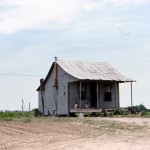




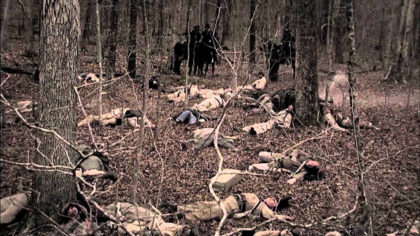

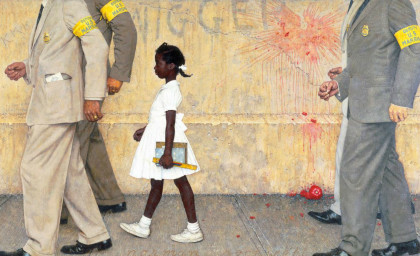

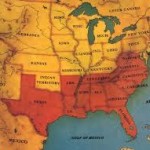
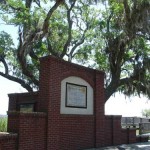
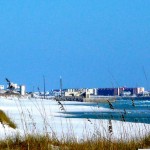


I was a couple of years behind you, I graduated from CHS in 1961.
I lived in Boyle, and at the age of 14 talked my mother into letting me drive an old ’49 Ford my dad and I had been rebuilding from home to the Cleveland Country Club to play golf. I got permission by promising to stay on gravel roads.
I was driving pretty fast on Hatchery Road and lost control. I went into a ditch sliding on the side and came to rest when the roof was taken off by a telephone pole.
I was not injured and called a friend who called my mother. When she arrived at the wreck her first remark was “you bent my G** D*** 9 iron”.
My dad had a lot more to say when he saw it.
Jimmy Ratliff